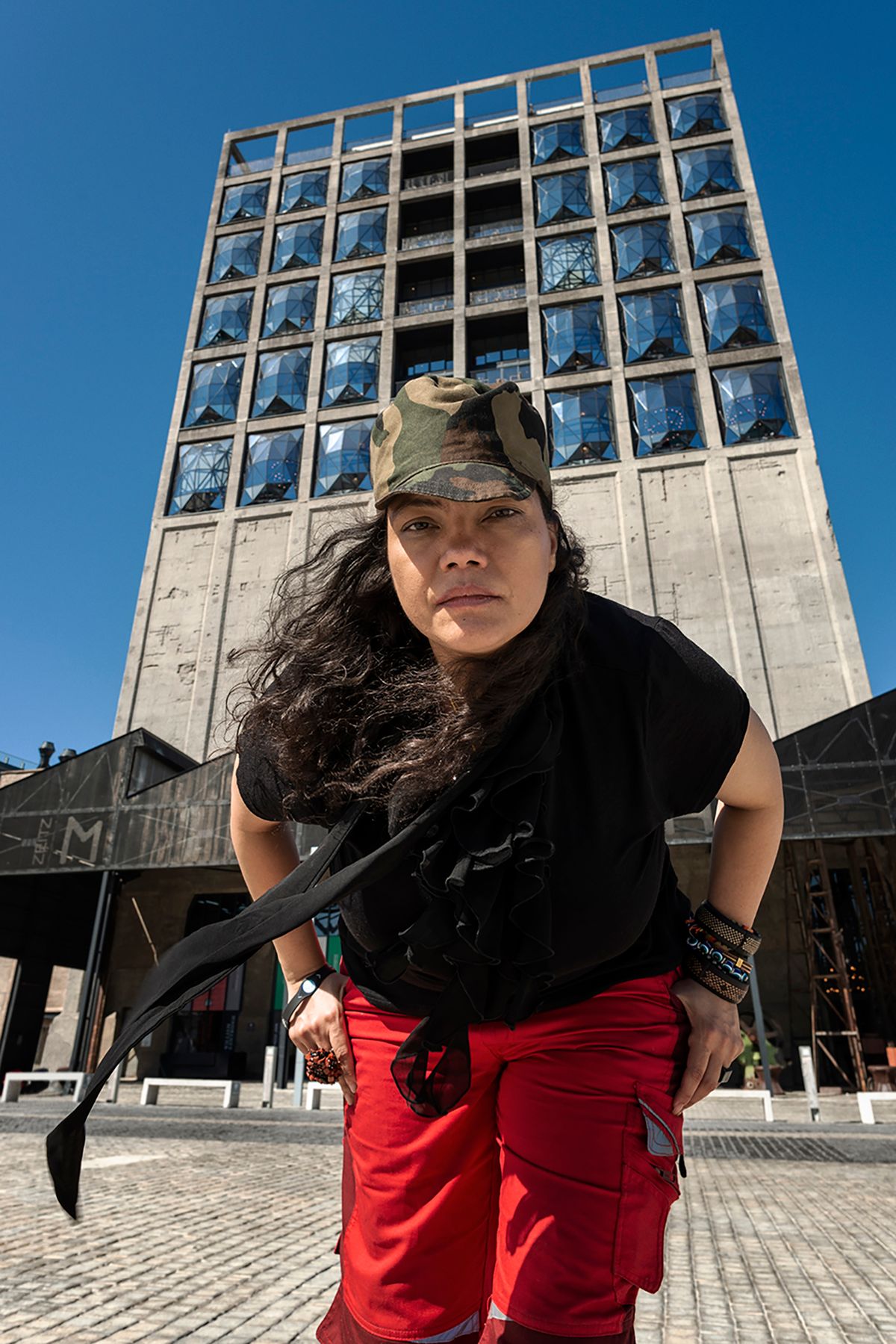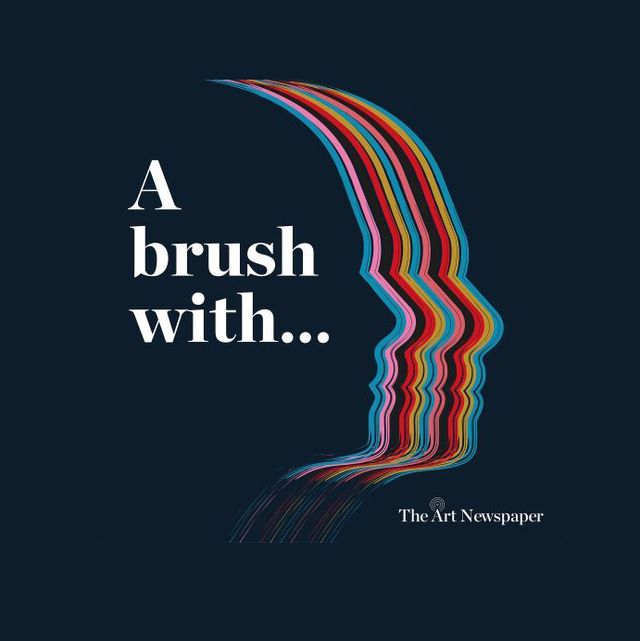In this episode of A brush with..., Ben Luke talks to Tracey Rose about how her influences and cultural experiences have affected her life and work. Among other things, she talks about her education as the only Black child in a catholic school in South Africa and her performances in which she explored gender and race, pushing her body to extremes. She discusses the seismic effect of seeing international contemporary art after the end of Apartheid, about how Duchamp is the most "African" artist in the Modernist canon, and how exploring her ancestry has led her to research the East African slave trade and the earliest forms of human creativity. Plus, she answers the questions we ask all our guests, including: if you could live with just one work of art, what would it be? And what is art for?
A brush with… series 2 runs from 2 December-3 February 2021 with episodes released on Wednesdays. You can download and subscribe to the podcast here. This episode is sponsored by Bloomberg Connects.

Claude Monet, The Water Lilies—Setting Sun (1920–26), Musée de l'Orangerie, Paris
Tracey Rose on... the first artist she loved
"Monet. It was the first time I saw the Water Lilies […] I was like two centimetres away from the surface of the canvas. And I just wanted to take my eyeballs out and roll them along. It's just this commitment to this mark and to colour and the expanse of the surface. Until then, throughout my entire art history education, we used to view really washed out, ancient slides. So all the colours were kind of yellow, off-white and bleached out and obviously you don't get the scale when you're looking in books […] I don't want to say it was a formal enjoyment because that just sanitises the experience. But yeah, it was bliss. So lush. Oh my fuck, my eyeballs were like overjoyed!"
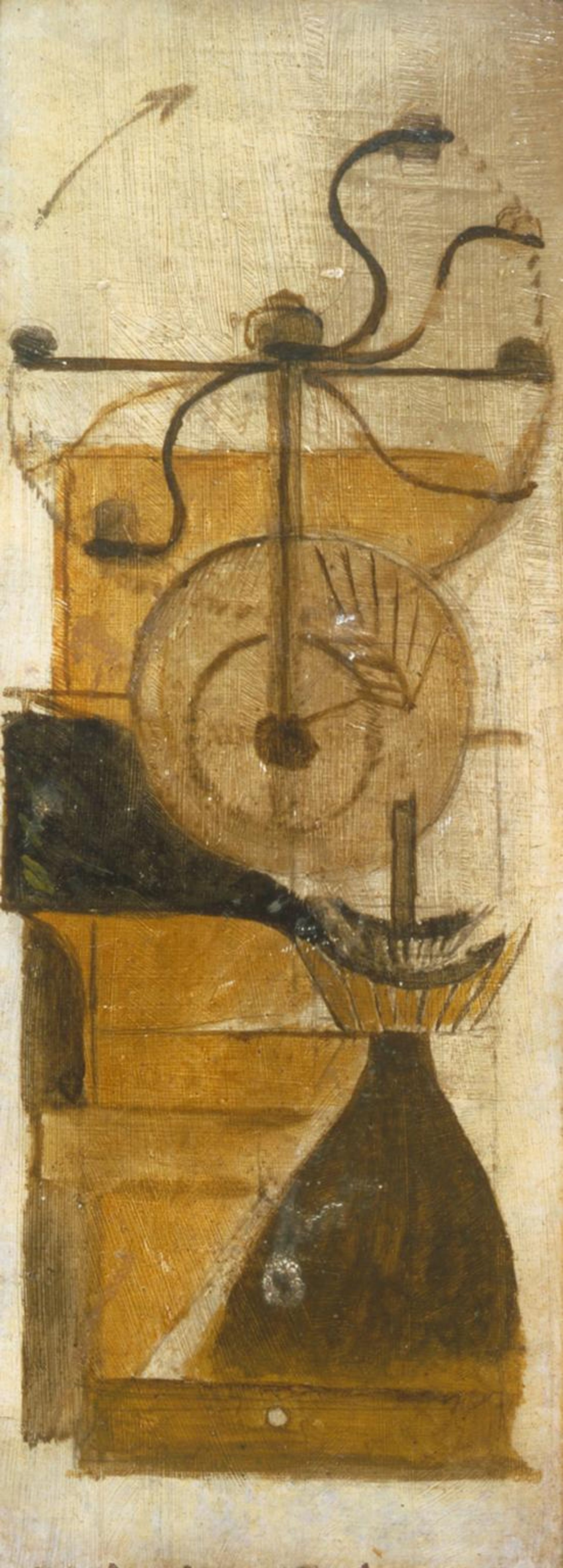
© Succession Marcel Duchamp/ADAGP, Paris and DACS, London 2020
... Duchamp and spiritualism
"Duchamp was a practicing Kabbalist […] So it's not just art for art's sake, this is magic and alchemy that we dealing with. And that's attached to spirit. Studying ancient African art [...], art wasn't just about creating an image and decor, it had far more of an innate impetus. And I found that with Duchamp. He was the first white male artist who wasn't using a paintbrush—I call it 'cock art'. Because really, it’s just painting with your fucking dick. I mean, that's all we've been subjected to, and then here's this person working with stuff that wasn't just intellectually charged, but spiritually charged too. And I love that the work was alive and invigorated with the duty to do something bigger than itself. For me, Duchamp is probably the most African you can get in terms of European art."
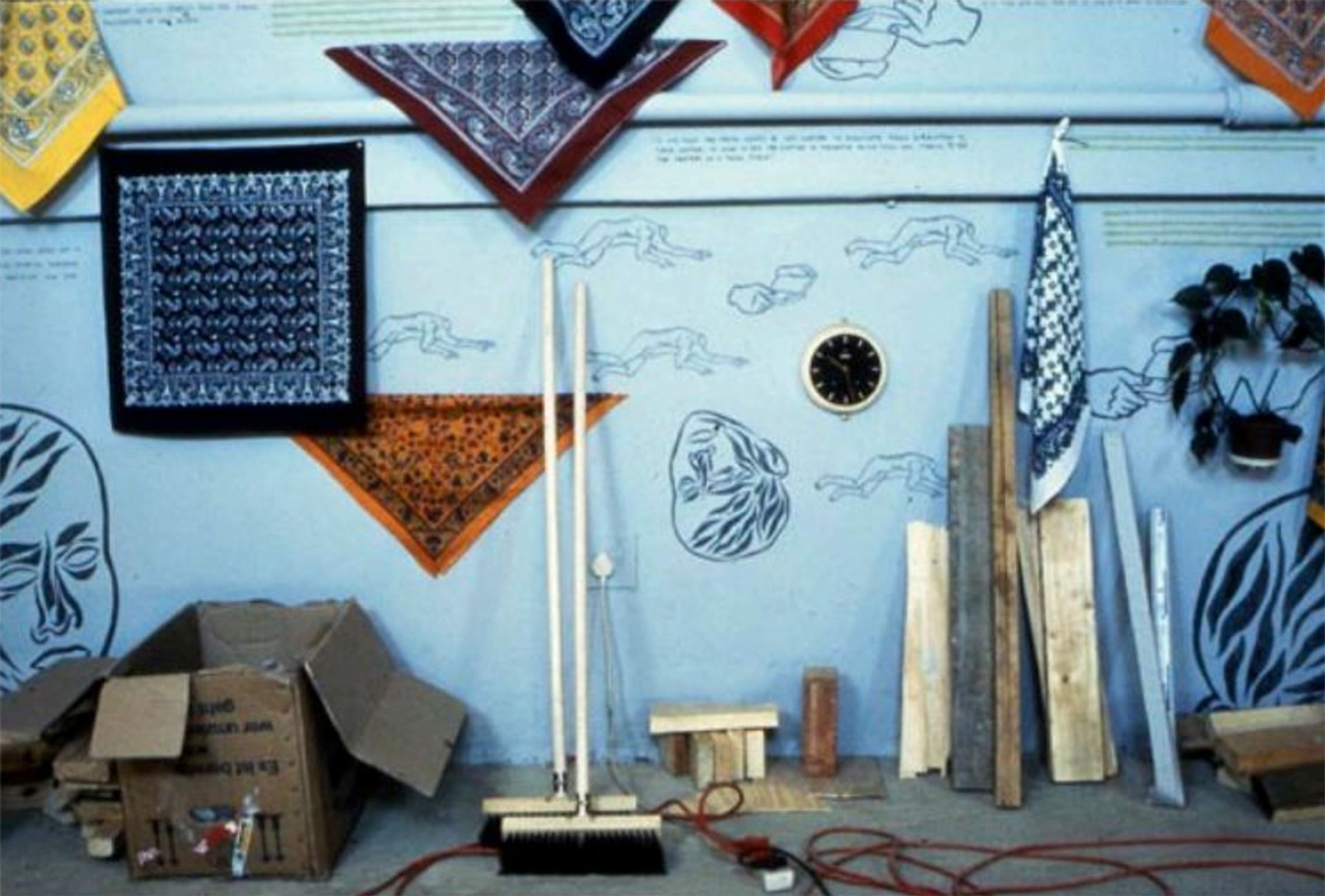
Carlos Capelán, Stepping out of the white cube (A little song for Johannesburg) (1995). Installation view
... the cultural event that changed her life
"The first Johannesburg Biennale [in 1995, one year after Apartheid officially ended in South Africa] was when the scales fell from my eyes. It was the first time I'd experienced artists of colour who were not European or American and who were making art using stuff. They were energised, they were magic, alchemic. It sounds really naïve to say this, but I then realised how bad Apartheid was, and how much it had kept us from. I'd go into Carlos Capelán's installation and just crawl into this cave-like room that he'd made, painted with mud using his hands, and I would just cry. It was really intense to see the level of deception.[...] All systems in my mind at that point just disintegrated. It was to see the systematic control of a people within a space and what the alternative would look like, what liberation would look like."
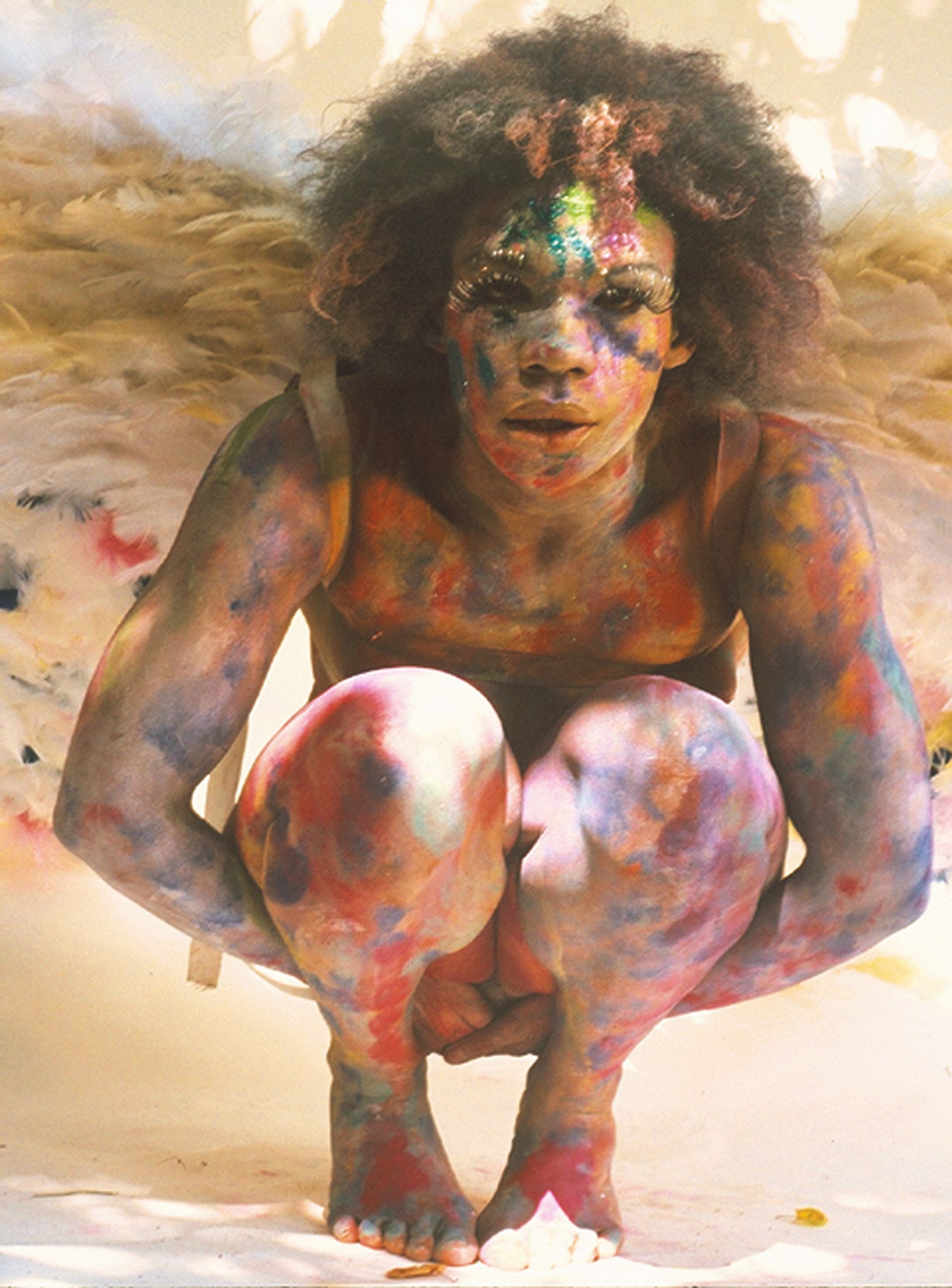
Tracey Rose, Lucie’s Fur Version 1:1:1 – The Messenger’, (2003) Courtesy the artist and Dan Gunn, London
... getting into the groove
"I used to listen to deep house back in the early 2000s. And that's where I found my soul. Five out of six days, […] from Tuesday night […] until Sunday afternoon, I was on the dance floor. No drugs, no alcohol, just deep house. And I never wore the same outfit twice."
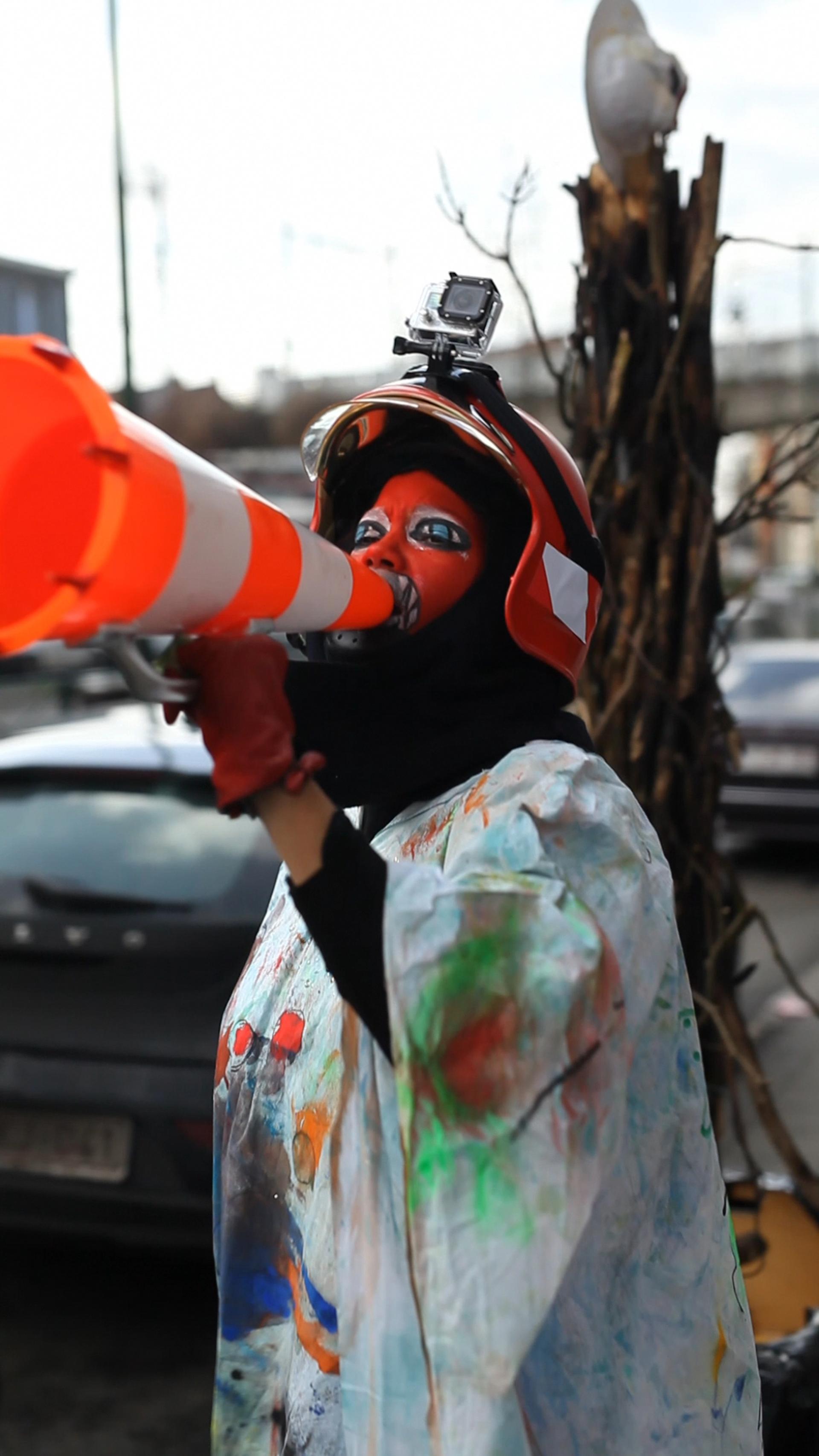
Tracey Rose, Die Wit Man, (2015) Courtesy the artist and Dan Gunn, London
... what art is for
"It's for everything. It's for life. It's for medicine. Going back to cave art, as to why we painted on walls, it wasn't just to document things. [A curator} once told me that they used menstrual blood in some of the paintings and that fucking changed the whole scope of what those paintings were for me. I think that's where the answer lies, in that really fundamental space of what art is. It's for joy, healing, pleasure and sustenance. God help us if we don't have any of that. It is absolutely crucial for our beings and our development as good people."


